
Aug 13 2025
- Growth
If I absolutley HAD to get clients in the door,
If I were to start freelancing from scratch, here’s what I’d do first to get clients in the door:

I have been both a unicorn, AND the world’s worst employee…
I moved jobs a lot and was even fired!
It’s insane how bad you have to be to get fired.
I would argue most people don’t even get fired when they are unable to do the job they are paid for.
Just look at the public sector 😂😂😂
So it’s more likely they have left bad jobs willingly.
Who’s the last one to leave when a business culture is a complete 💩 show?
The coasters, the unambitious, the lazy ones.
Good people make the hard choices:
So the best people are the first to jump ship when conditions aren’t right.
The ambitious, the driven, the intelligent ones.
When my bosses allow me more freedom, to action my ideas I was the hardest workers, I would work late without thinking about it, or asking for more. I would take initiative on things, and made them a lot of money.
But If im in a dead end job,
If the job is below my skill level,
if I have no control or agency over my projects…
I get bored very quickly,
lose my energy, and the job seems pointless,
so I don’t even try.
So they could be a deadbeat,
but it’s more likely they are ambitious and intelligent,
in jobs which don’t challenge or inspire them.
Ask them why!
But there’s only one real way to find out.
Run a small test and see if they jump on it lol
I have a guide on how to find and hire the dream team, and how to run low risk tests with them, can send a link if you want?

Purpose comes from doing.
Anytime I feel I’m lacking clarity, or purpose,
It removes the overwhelm of choice for me And keeps me working towards my purpose, even when I can’t see the results or progress.

I doubt myself and skills, I worry I’m not good enough yet to start a freelance career. I work with WordPress to make websites, I was thinking to add Webflow as a skill too, I always think I have to learn more skills before I start?
I wouldn’t worry about being good enough. The truth is if your starting out you’ll make a lot of mistakes and fail a lot and that’s fine.
There’s very little risk to starting, it might not work out, but it costs nothing to start so you haven’t lost anything by trying.
You don’t need to be the best, you only need to be slightly better than your competition.
In fact you don’t even need to be a better designer;
you only need to be better at communicating with the client.
RE freelancer skills…
don’t add multiple skills that do the same thing (webflow, wordpress, Squarespace).
Instead stack skills that multiply your value,
and lead naturally into each other
You don’t need skills before you start,
You start then learn the skills you need as you go.
Courses for “doing” skills like web design won’t get you far, the best way to learn is by coming across real problems for real clients in your projects, then solving them.
If you’re not sure what skills to focus on, after you have X2 valuable services under your belt, focus on learning sales it will help you grow fastest and build a safety net of profit in the early days, when clients are harder to find
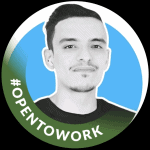
Sort of…. My “day job” is design services, which I offer through Design Hero but I do consulting for entrepreneurs around digital marketing.
“branding, strategy, consultant” can all go together. There’s enough overlap.
You can also offer consulting as a side solo gig while working fulltime or as a solopreneur
Example:
I run my design agency, Design Hero.
Over the years I’ve stacked a lot of high value skills so my offer is a full package for launching a succesful startup:
But I can also offer consulting on any of those aspects for entrepreneurs who want to do it themselves, but with extra guidance.
In fact I usually tack on a 4th part to my offer:
I also sell monthly “super sessions” which is basically consulting, or coaching on a retainer basis
I can advise on business strategy, automations, growth, growing a team, marketing, and any other problems that I’ve solved myself.
If you’ve solved problems in your own life or business you can sell the solution to others.
You can also build a personal brand as a solopreneur around the particular niche you decide to focus on
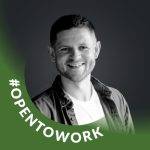
Oh wow that’s a lot of problems lol!
❓ Finding paying clients with the skillset I have
https://lifebydesign.online/leads/
❓ finding time and money to expand my skillset
I recommend these articles
https://lifebydesign.online/time/your-day-is-your-life/
https://lifebydesign.online/growth/freelance-growth-hack/
https://lifebydesign.online/productivity/big-tasks-require-small-actions/
❓ how to find them and talk to them in a way that shows them how I can solve their problems
This would be solved by having an offer that speaks to pain points in your ideal audience.
recommend downloading my offer worksheet and working through it:
https://life-by-design-online.ck.page/230c220556
❓ Consolidating my presence online and creating free content that shows my skillset
https://lifebydesign.online/systems/solopreneur-content-strategy/

It can be really tough getting your foot in the door as a junior.
My advice is just keep trying.
Speak to friends and family and so some favour jobs to build experience of working with real clients.
Get on Upwork and start doing you own thing to.
On Upwork you’ll need to be prepared to work for very little in order to build up reviews and cred first.
My advice on this is quantity over quality.
Do lots of tiny small jobs, be honest in your proposal and say your new and looking for experience and reviews, and in exchange offer a much lower price than the competition.
Trade time for reviews.
Of course to get reviews you have to offer a great service.
This doesn’t mean being the best designer or developer,
It means being the best communicator, making sure your client has a good experience.
Of course you’ll want to provide a good result too. But experience is as, or more, important.
One thing I like to do is go above and beyond.
If you quote for redesign of a homepage, do some design changes on the about page and let them know you’ve thrown it in as a bonus extra 🙂
Then as your profile and success rate grows, you can start charging your worth and increase over time.

There’s certainly lots of potential for you in this career, web developers will always be in demand.
But you’ll need to be able to demonstrate skill and ability to stand out.
This is tough if you haven’t had a job in this area first.
If you can’t find paying clients take on personal projects.
They only way to stretch your skills is to take on real world challenges and constraints.
build as many different things as you can!
These personal projects become your portfolio, which will be a stepping stone into your first paid gigs.
There are several routes for you,
You can find a job to get some experience,
Or you can start freelancing.
Both have their own challenges.
A job means secure monthly payment, and not much responsibility.
There’s an attraction in this.
But a job isn’t as safe as it used to be.
Most small companies can’t afford to pay juniors the money they need to meet rising costs of living.
Larger companies don’t really want juniors.
In addition.
I don’t believe that job are the long term “safe option” they used to be.
I myself was fired from a job the day before I was going to ask for a raise.
Freelancing, or starting your own side hustle, is tough.
Freelancing means working for many years for not much money.
But with freelancing, your earning cap is potentially unlimited.
You will also have a LOT more freedom to live the life you want.
But it’s a lot of pressure.
You have to learn to do literally every job role yourself.
You have to bring in your own work.
In the end, you have to decide what’s right for you.
Of course, you can find a job AND freelance as a sidehustle, which is what most folk do these days.
It’s a safe way to go.

I’ve expanded and moved a more full response to this question here


I wouldn’t quit without a secure income lined up, but I wouldn’t wait to start sidehustling either.
Many people are already freelancing and side hustling.
The two aren’t mutually exclusive.
If you’re are torn between wanting to quit and being able to quit,
you don’t want to be in a position where you’ve got to start growing a side-hustle from scratch.
You can make a huge difference in six months to a year, but obviously, as with anything, the change is a trajectory.
You want to start growing your sidehustle as soon as possible.
Give yourself options:
If you’re torn between wanting to quit and being able to quit,
you don’t want to be in a position in four years where you’ve got to start growing it from scratch.
If you find yourself in this situation,
then it’s going to take you years,
you will have to work a job you don’t enjoy,
and you’ll feel pretty bad about it
If you find yourself in this situation, then it’s going to take you years, you will have to work a job you don’t enjoy, and you’ll feel pretty bad about it.
I worked long hard for years plus evenings and weekends,
and even then for almost a decade my side-hustle made almost zero money.
Real success is just consistency + time.
During that time were a lot of difficult choices,
a lot of second guessing,
a lot of agonising.
Set aside time to work on your sidehustle everyday and keep consistent.
It can be boring and hard and slow but that’s what’s required if you want to build a new life.
So I would say the earlier you can start growing your side hustle, the better.
If you can grow your side hustle to where you are earning as much as your full-time job and you don’t need the work.
It puts you in really the ideal position to quit, while still having a secure income
So don’t quit unless you’re ready,
but don’t wait to grow your sidehustle!
If you’re ready to start, here’s a roadmap to start freelancing from scratch

Why should the goal be to remove all manual effort and discomfort from our lives?
Since having a child, I am bombarded daily with special pillows to support walking, sitting, and crawling.
There are a myriad of noise machines, lights, oils, and scents that promise to solve the problem of babies not sleeping.
But are fake solutions to real problems.
The only solution to lack of sleep for parents, is “be tired for a few months”.
Lack of sleep is a preal problem.
But even worse than fake solutions is the industry for fake problems, producing plastic novelty products to solve “problems” that don’t exist.
An endless parade of mass manufactured plastic tat has invaded our lives, masquerading as a “problem to be solved”, destroying our planet for a product with a shelf life of days, or even hours for the sake of a £5 transaction and next day shipping:
Banana cases, egg peelers, electric can openers, belly button cleaners.
I couldn’t live without some things:
The time pressure of modern life are simply too much.
My marriage probably wouldn’t survive without a dishwasher.
A certain amount of automation is a good thing.
But as much as possible,
I should try to avoid the temptation to remove micro efforts from my life.
It’s these little movements that keep a body healthy and strong in later life.
I don’t want presliced carrots I want to grow and cook my own food
I don’t want smooth skin I want rough calloused hands from doing good work
I dont want a robot lawnmower, I want a body that’s conditioned and capable for old age
I don’t want unlimited entertainment, I want to be able to sit with myself and quietly reflect.
February 25, 2026Don’t automate all the little things that make up a rich, balanced life.
A typist was once considered a skilled job.
What was once a feature on a CV is now a standard requirement in order to be able to work.
The profession become obsolete, replaced by a skill.
Nowadays, You have to be able to type, and to use word processing software and spreadsheets to function in any basic office job.
Photography required bulky equipment and skilled technicians.
Now it’s a feature on your phone.
Printing was once a specialist business with lots of plant and equipment.
But the technology was miniaturized, the interface simplified, costs reduced;
until eventually being able to use a desk top printer became just a daily task for an office worker.
The same will be true of design, marketing and copywriting skills.
They will need longer be a profession or skill,
But simply a requirement to be able to work certain generalist jobs.
Canva is leading this charge and the writing is on the wall.
So what do I think about the impact of AI on the creative fields?
AI is just yet another tool which will become a standard entry requirement
In a long enough time frame, all skills eventually become basic entry requirements.
So before that happens, turn skills into leverage…
February 25, 2026Been thinking a lot about finding my niche recently.
I purposely write a lot about lifestyle design for freelancers because this was my background.
Freelancing was my entry point and the ticket that funded and enabled my experiments in lifestyle design.
It has given me the agency over my own time, and financial stability to run these experiments
But more and more I find find I want to write about my other interests.
Although I primarily write about systems to run a design agency,
The stuff that I find truly interesting
Is stoicism, meditation, lifestyle design, counteracting common culture, societal conformity and mindset shifts.
All of these things in service of a greater goal:
A fulfilling life
So why is it so few people actually write about this topic?
Guru preaching about making money?
They want more money so they can reach their lifestyle.
Manifesters?
They want the life of their dreams.
Productivity experts?
The want less time and stress.
Almost all topics, niches and content crestors are downstream from this topic of happiness.
Talking about money, productivity, and hacks is sexier,
Yet all are downstream of lifestyle.
Growth will be slower.
My audience will be smaller.
But I’ll continue writing about lifestyle design for freelancers,
because that’s the route to lasting happiness
July 25, 2025
I’ve noticed this addition in my minimalist email app SuperHuman:
automated followups and automated responses.
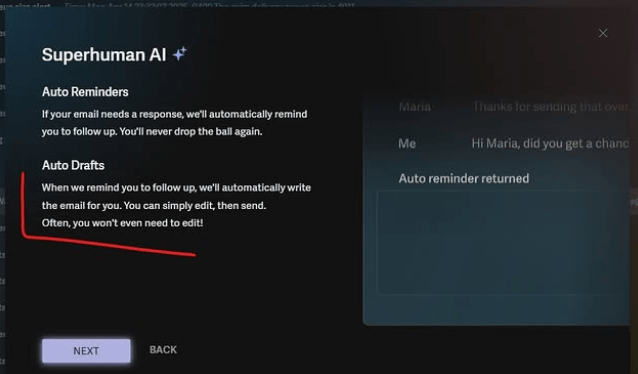
On the surface: great
In reality: more busiwork.
Emails create more emails.
AI techbros love to say that AI will free us from the admin work and multiply our productivity…
but will it really?
Just what we needed:
Fifty more emails chasing us for something we only talked about yesterday!
We already suffer an excess of information, folks are struggling with information overload already….
In the 1960s when they introduced of electric hoovers, ready-made meals and microwaves,
housewives believed these tools would free them from responsibilities of running a house.

But what happened?
We adjusted our standards
People now expect spotless homes,
shirts need ironed every day,
delicious meals should be available on demand.
It didn’t reduce the burden, it increased expectations.
Women were forced to shoulder more responsibility, not for the first or last time…
Workplace equality may have been source of empowerment
But the net effect on families was not the expected income boost:
Prices are determined by what people are willing and able to pay.
Unfortunatley we haven’t learned much from this.
Techbros believe AI is going to help us be more productive human robots, producing ever more value for our tax-mongering governments and corporate overlords.
Before self-scan checkouts entered the supermarket, we used to wait in line for a human to scan our shopping.
Now we wait in line for a miserable underpaid human to shamble over with an electric key to override the scanner which malfunctions every 3rd item.
The net effect is the same;
The supermarket has cut it’s workforce spending.
More profit for them, but somehow we ended up doing more of their work for them. 🤔
And worse, they strip the small social interactions that keep people connected as a species.
Remote workers already struggle with lonliness.
Now whole swathes of the workforce can look forward to spending their day interacting with AI bots.
Knowledge workers will become “checkout operators”, reduced to connecting apps with AI output which won’t integrate.
For the solopreneur, AI has immense s benefits in specific niche areas.
But in a lot of areas I feel it’s creating more busiwork, without adding value.
My fear is not about AI. AI is happening. AI is just another tool in the workplace.
My fear is that the SAAS industry is shoehorning in AI features without thinking about whether they add value for customers.
We don’t need more comms, we need less.
We don’t need more information, we need less.
We need to control our information diet.
We need AI tools that removes admin, busiwork, and labour.
P.s If you ARE scared about AI, here’s the strategy I’m using to protect my value against ai
May 29, 2025
If you want to make a little bit of money,
sell things people want.
If you want to make a lot of money,
stop selling things and start selling transformations that make people feel things.
If you want to make the most money,
But actually help people too,
Sell knowledge to help people change their life.
The market is full of creators producing and selling valuable products.
But over production isn’t the problem, over consumption is the problem.
After WW2 between leading physcologists and governments to design culture in favour of consumerism consciously.
They utilized newfound propaganda techniques which are now known as “public relations”.
The goal was well-meaning:
To protect a newly liberated workforce from mass joblessness.
But the long-term effect was rampant consumerism and zero-sum thinking.
The net effect of this social engineering is that…
Our culture says a good citizen is someone working to earn money to buy things we don’t need.
Culture says success looks like all the stuff in your garage you never use and the badge on the car you can afford.
Once people shift back to better values (experiences, people, consciousness) production has less power.
If find it strange that capitalism has changed so little in 50 years.
They are still selling products to satisfy needs on the lower rungs of the pyranid of needs (things, entertainment).
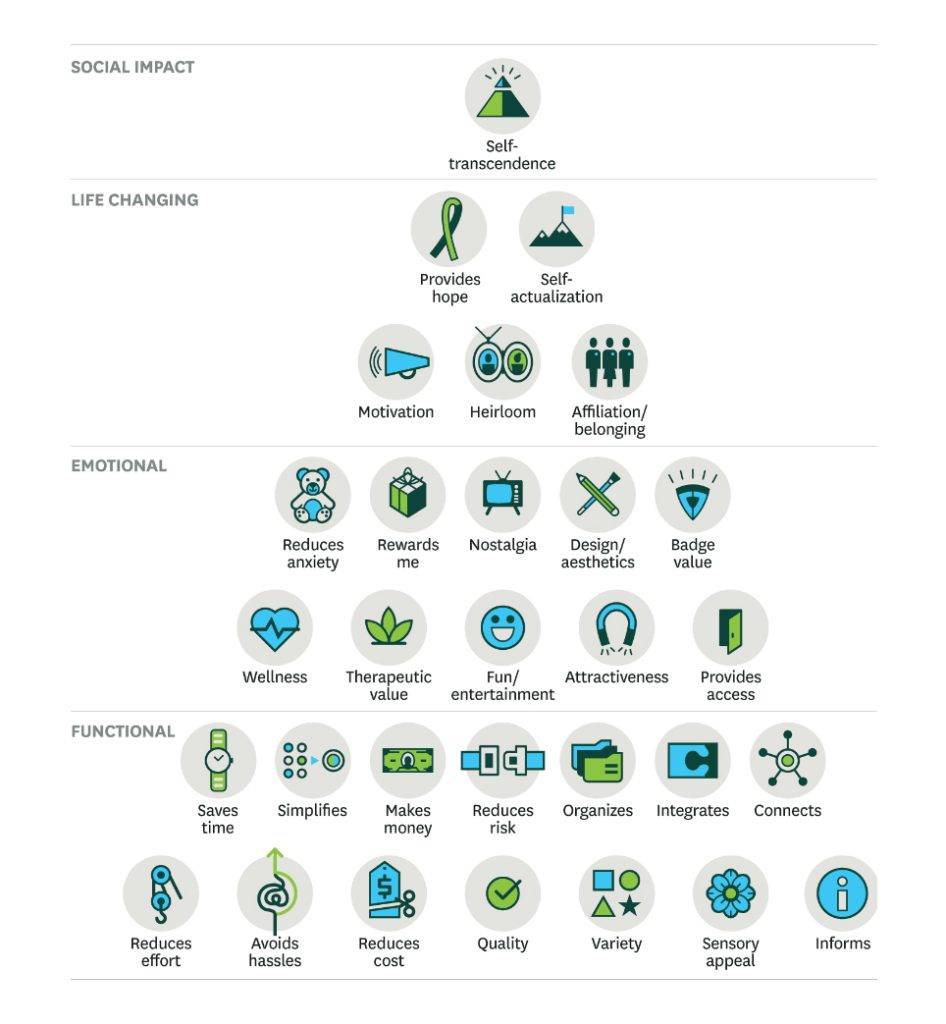
I think once production shifts to sell things at the higher level (safety, community, purpose) society will become a more stable place too
When you focus on doing good work and helping the client first,
the money becomes a side-effect of success.
I’ve been so brainwashed by default cultural values where the only thing of worth is income, job title or business growth.
I find I have to remind myself of this CONSTANTLY.
I keep forgetting my goal is to prioritize free family time.
Ill watch a podcast or chat with a peer running big design agencies,
or chasing ambitious income goals,
And I admire them for it,
and set my own similar goals,
all related to work.
then when I fail them,
because I don’t have the time or I’m battling with ambition or low energy levels to make it happen right now,
I think “I need to do this or that”.
Then I remember,
That’s their goal.
My goal:
I only work 4 hours per day.
The rest goes to family.
I’m right on target, for the only goal that matters
I just keep having to remind myself that that’s my measuring stick for success.
May 20, 2025It’s funny how the misfits and outcasts at school often do well after school?
It’s almost as if the things that make you successful at school (conforming) set you up for an average life,
And the things that set you up for bullying at school (critical thinking, individualism) prepare you for exceptional life.
This is only my own experience, beware proximity bias,
need to hear other’s thoughts stories on this.
Freedom | purpose | profit
You should revisit each at different times
Balance is impossible.
I originally created the diagram below to represent the 3 pillars of Life by Design,
But I quickly realised it was innacurate, and worse,
misleading.
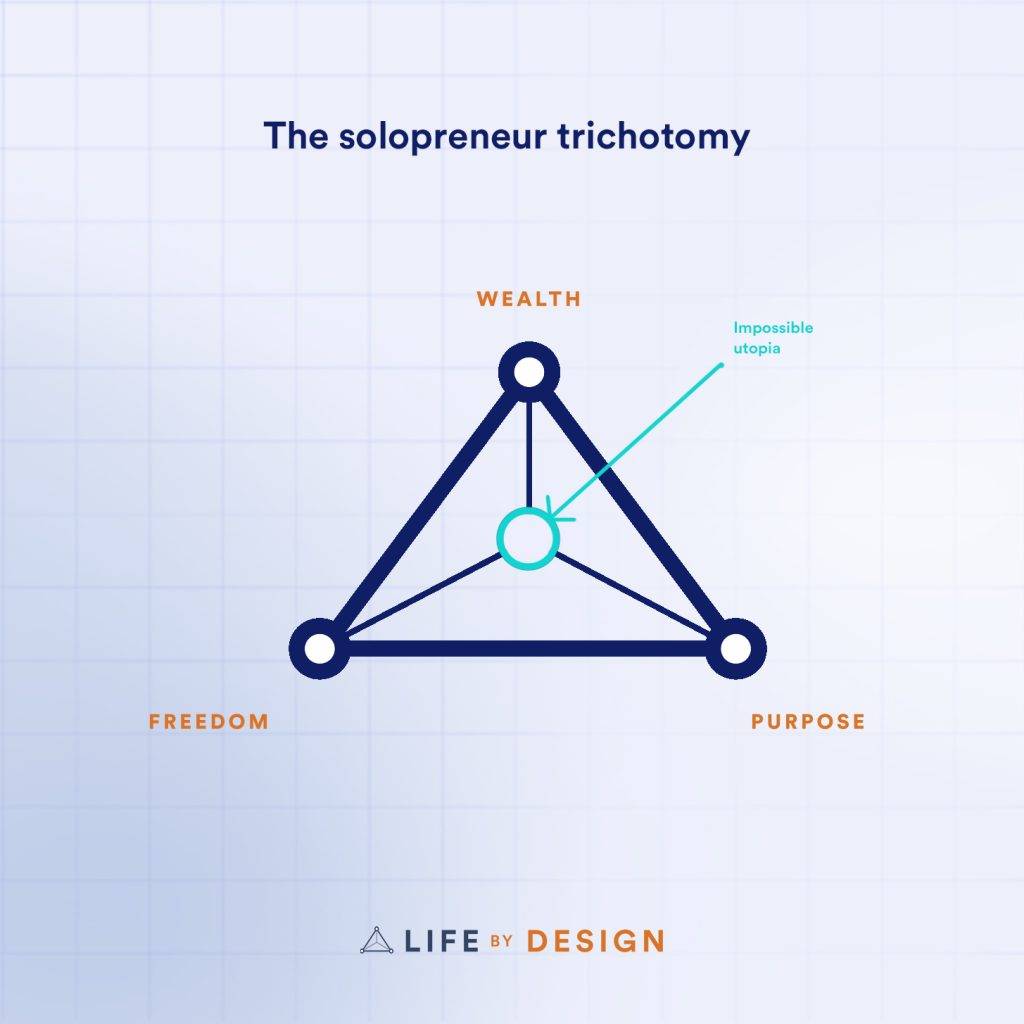
There is a hidden centre that lives in the middle of this ven diagram:
“impossible utopia”
You will prioritize different areas at different times.
Like stoicism, achieving perfection in any one area impossible,
rather it’s a life-long balancing and progressing little by little.
If you have unlimited profit with no free time to enjoy it and no purpose to guide your days you’ll become depressed and no amount of money will solve this.
In fact, time and profit can often be inversely related to purpose.
If you have as much free time time as you like, but no money to live and no propose, again depression
The devil makes work of idle hands
If you are filled with a singular purpose, but have no income to support your purposes, or no free time to work on your purpose you will be frustrated.
Consider Nathan Barry, foudner of ConvertKit.
He built and grew his company to $1M/month in revenue, then stepped back from the company.
Despite the success, he publicly shared that he felt depressed, aimless, and unmotivated.
The problem wasn’t money or freedom—it was lack of purpose. He had hit his big goals, but hadn’t set new ones, leading to a kind of existential drift.
This is a classic example of the “arrival fallacy”—thinking you’ll be happy once you “make it,” only to feel empty when you get there.
He eventually found new meaning by re-engaging with creative work and mentoring others, writing about this experience in acclaimed blog post “enough“
In other words, he had built so much profit that he no longer needed to work, so he then had a surpluss of profit, leading to a lack of purpose.
We all must do our best to live on the middle,
To adjust accordingly,
To rebalance regularly.
The current state of AI and the creative job marketing has me thinking this a lot.
(parts of ) My job may be obsolete in about 5 years
The bottom end of the market will fall out and only the established experts will continue to earn
I know they’ll have a lot of learning to do.
The future will belong to those that can wrangle AI better than others,
and that can combine multiple skills into one package which sells
As someone who spent most of their life playing learning, creating selling and exploring in an online virtual environment,
I’m particularly worried about adaption.
I know I have a lot of cross-transferable skills
I know I can pick up new skills easily.
And I have the skills that I need to sell new skills
The question is not:
“How do I adapt?”
but
“do I even want to adapt?”
For the last 3 years, I’ve been accurately tracking my emotions throughout the day as well as getting more serious about journalling.
Using AI to analyse my journals
And analytics through my emotional tracking
There’s a pretty clear theme emerging…
I’m much happier when I’m building things in the physical world.
I generally find the internet is an exhausting place to be in recently.
Content and the internet in general in a broader sense is becoming more generic.
Short form content that rules on social media is like sweeties for children.
First, the online creator economy has flooded the market with shallow content.
Now AI is supercharging that deluge,
and social algorithms seem to be doubling down, speeding their own eventual demise.
It’s getting harder and harder find good content
And for my own content to get found,
Under an avalanche of over optimized engagement schlopp.
I can see two paths ahead of me:
1
I can permit my skills on my knowledge and authority in the design/ marketing strategy space into something that will still leave give me leverage and profit in the virtual world, probably something related to or aided by AI.
Or 2
I can pivot into some my physical skills, building things designing things, creating things in the real world
The latter is probably less scalable but more satisfying.
I would have to sacrifice the level of free time right now.
And probably a lot of the money that I make right now.
I wouldnt have as much time with Fin and Immy either.
In exchange for alignment, better physical health,
satisfaction
Have to also be aware that the grass is always greener on the other side
I could pivot into something new and end up hating it or getting bored.
This requires some hammock time to figure out…
On social there is a strange glee from the “you’re going to lose your job” mob.
I’m in the bracket of “at risk from ai”.
And I would say it’s a big IF.
You’re going to lose your job IF…
IF you don’t adapt.
There are two main camps when it comes to AI adoption in the creative industry …
These gleeful adapters believe they bebefit from AI because they probably had little original content in the first place. They have probably already changed their li description to “ai expert” and are selling their half backed digital products for £12 a pop.
They are “human first” and think naively that everyone will band together to shun ai.
They seem to think if they ignore it long enough, everything will be fine.
I’m in a 3rd camp:
Ai is not a replacement for my thinking but it is an ideation and labour tool to multiply my own human thinking.
When computers entered the workplace, it changed the game.
Previous jobs like “typist” became obsolete quickly.
Pretending that isn’t the case doesn’t help anyone.
When I used to be an architect, computers were already commonplace for a long time, yet we still received CVs and applications which would list “Microsoft Word and excel” under skills.
These aren’t skills, they are basic tool requirements to be able to work.
You wouldn’t see a joiner listing “saw” under their skills.
The ones who learn and adapt to the new tools will thrive.
AI is ALREADY a basic every day tool for all admin jobs and many knowledge workers (for some parts of the job).
Businesses will hire people who develop leveraged skills they haven’t had time to pick up.
Or that continue to deliver value that’s worth paying for.
On that front nothing has changed.
Remember: AI is a multipler: If you deliver 💩, using AI will only create more 💩
May 13, 2025
Simple strategies don’t work the way they used to.
Social gurus love talking about focus and strategy
This works if you’re chasing simple goals in a simple system
But the world gets more complex everyday
The path to our goals isn’t clear anymore.
Using simple systems in a complex strategy will lead to frustration and failure
We’re told we should always be moving forward
So failure feels like failure instead of learning
Stop going in circles
Start growing in circles…
…👇
In a complex system, with complex goals
There are only two ingredients that lead to success
Consistent failure and adjustment
is the way to achieve your goals in a complex system
Here’s a consistency system for Solopreneurs I use to start on track over weeks months and years…
March 22, 2025Your contact details will be private. The answer to your Question will be public so other solopreneurs learn from it.